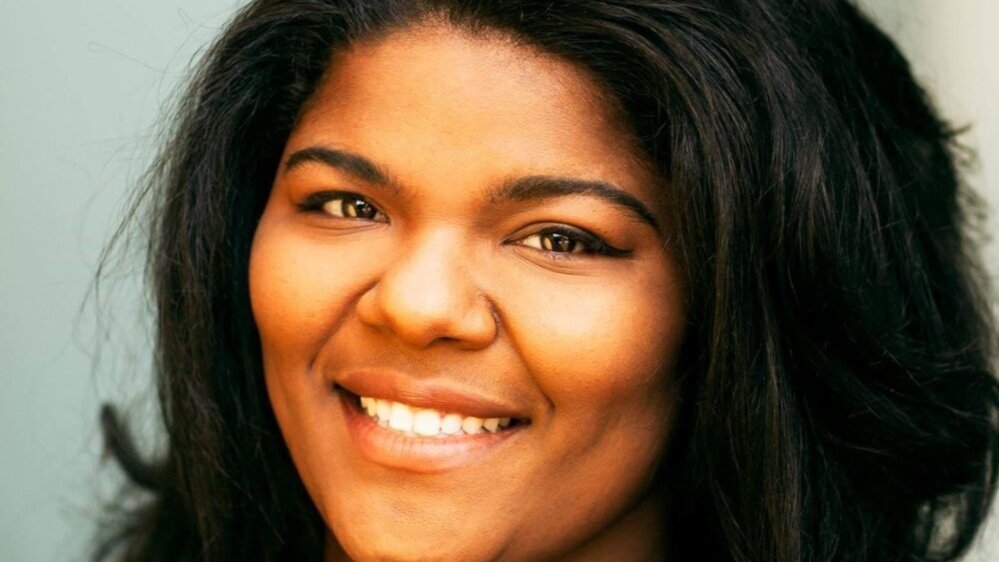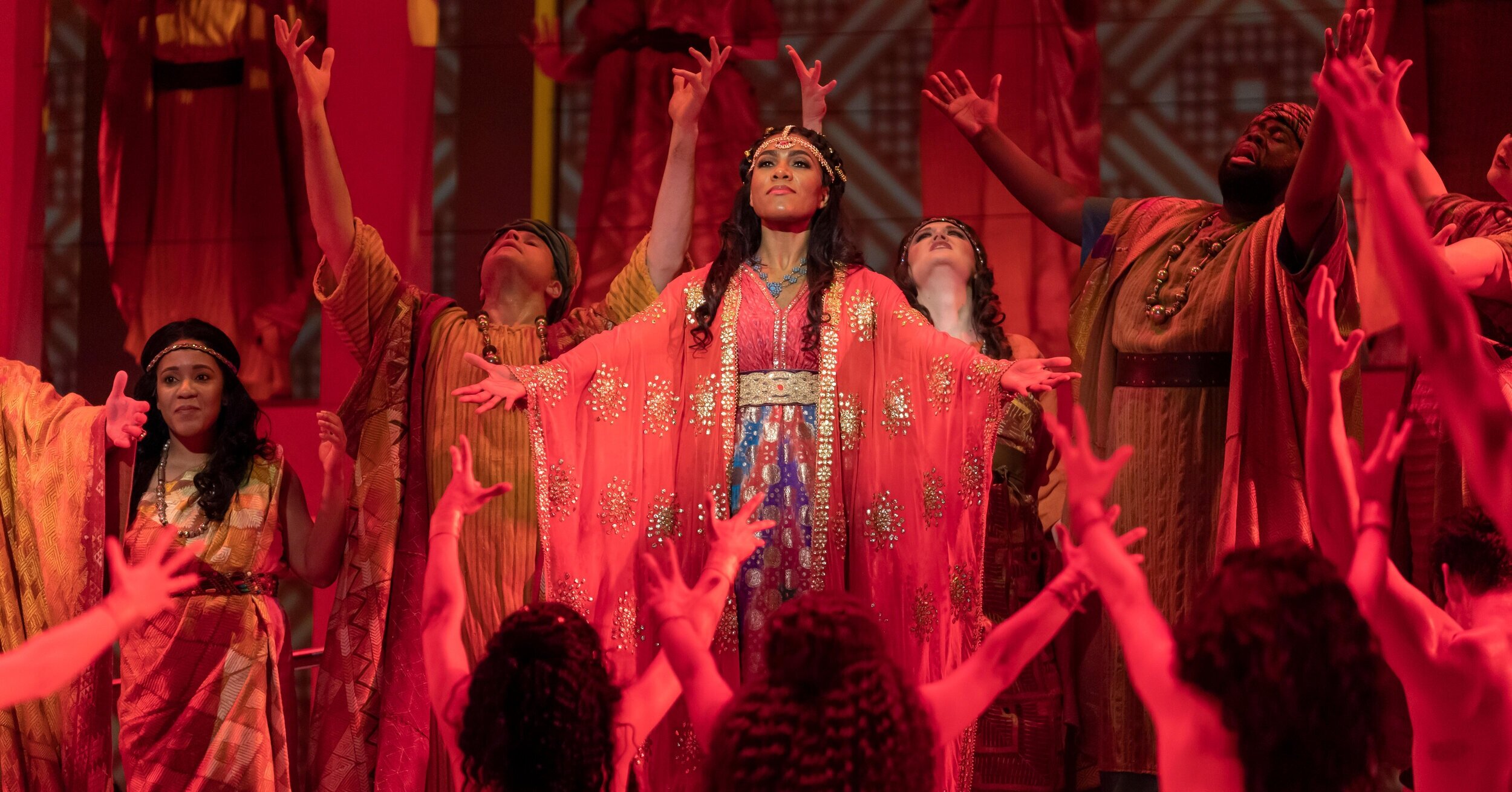We're back, live with the Macbeths!

American Shakespeare Center launches its live summer season with the Scottish play.
After parting ways with former artistic director Ethan McSweeny in February, American Shakespeare Center decided to put artistic control of the company in the hands of four of its actors. This decision came after the company had already launched a bold plan to keep performing during the pandemic (with numerous precautions), which resulted in problems with Actor’s Equity, the labor union for actors and stage managers. Meanwhile, the pandemic destroyed revenues and no doubt took a toll in other ways on the company’s artists and staff. Their pluck in the face of these events is admirable, albeit a bit of vertigo for observers. One way or another, the theater powerhouse in Staunton, Virginia seems determined to continue creating work that draws accolades and audiences across the Shenandoah Valley and beyond.
For now, leadership duties have been assumed by Brandon Carter, John Harrell, Christopher Johnston, and Zoe Speas. This sort of arrangement isn’t exactly new ground for the company, which has regularly staged plays without a director through a program called Actor’s Renaissance. In March, Harrell told American Theatre “I think we are maybe more perfectly set up for this sort of experiment than any other classical repertory theatre, just because of the nature of the work we’ve done in the past. As we head into the future, I think it serves us well.”
Last month ASC’s Actor’s Renaissance Summer repertory season kicked off with Macbeth. Henry V arrives June 17 and All’s Well That Ends Well in August. It’s a challenge to resist the urge to tease out a subliminal message or allegory on the company’s state of mind with those choices and the order in which they’ll be presented.
Last weekend I attended an outdoor performance of Macbeth at Mary Baldwin University’s Rose Terrace. It was a warm evening, and the protocols regarding masks were unclear. Before the performance I received a message stating that in response to the CDC’s recently updated recommendations, the company would be reviewing its policy regarding wearing masks and make a decision before the performance. Or at least that’s how I understood it. When we arrived, there was a sign at the entrance requesting everyone to wear a mask. Some people did, some people didn’t - it was about a 50-50 split once everyone was seated. I kept mine on, more out of cautious habit than safety concerns, but here’s where I’ll admit that the combination of the warm night, the mask, and perhaps the wine we had at dinner, made it an effort to focus through my continually foggy glasses.
Still, the performance gave me concern about how the director-less approach will fare over the course of the summer. According to interviews and statements, the McSweeney debacle created some deep resentment and emotional pain for the actors and staff. The adoption of the actor-manager arrangement in lieu of finding a replacement for McSweeney seems in part designed to ameliorate those negative experiences and their consequences and foster a more supportive and aware environment.
That sounds good, but I wonder how hard artistic choices are made? Who decides when something isn’t really working? How is constructive criticism delivered? Again, the company has experience in this method, but will it all start to break down in the summer heat and humidity as differences in approach and interpretation are exposed and cause “problems”? Who is going to point out what’s not working, and how will it get fixed?
During Saturday night’s performance the distracting sensation of watching actors out of sync with each other returned over and over again, with each performer primarily delivering his or her own interpretation of their role. Fine, that’s what actors are supposed to do. But there was scant evidence that anyone considered or cared about whether or not the sum of those individual interpretations made a satisfying whole, or what could be done to achieve more impressive results.
Chris Johnston’s Macbeth is a ball of manic nervous energy, and plays well against Nic Sanchez’s dim Duncan (Sanchez also performs the roles of the Porter, Old Man, Lord, and Siward), but they seem to be in an entirely different play than the one inhabited by Zoe Speas’ cool, crisp Lady Macbeth and Brandon Carter’s smoldering Banquo. Individually, all of these performances have something to say about the characters, but collectively they just don’t seem to be listening to each other. Which means their actions and words don’t induce the dread, horror, and fear which they could and should.
The result is more entertaining than involving. I want Macbeth to make me feel slightly queasy about the thin line between legitimately achieving power and seizing it, and the calculations and lust that lead to the latter path. In light of January 6th, it should especially resonate in this way. Still, the wit and talent of the cast and crew manage to keep it afloat rather than adrift, and while it may not be the best Macbeth you’ll ever experience, there’s enjoyment to be had in being able to experience live theater again.
American Shakespeare Center’s Macbeth runs at Mary Baldwin University’s Rose Terrace in Staunton, VA through September 5th. Click here for performance dates and tickets.





